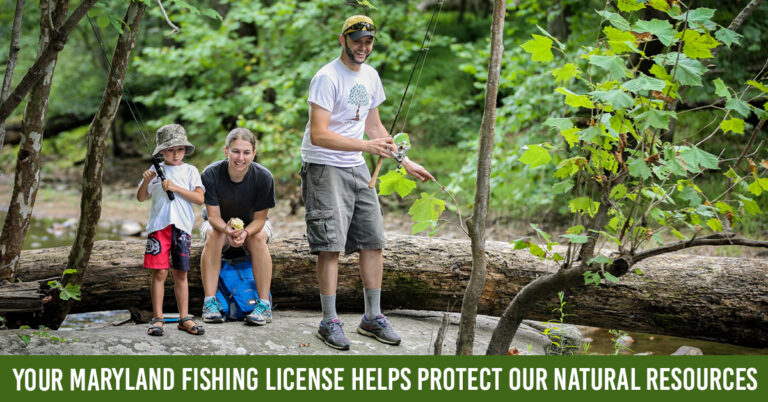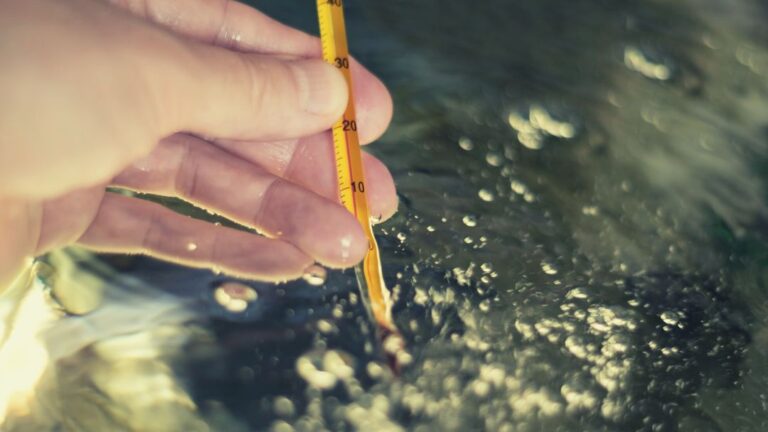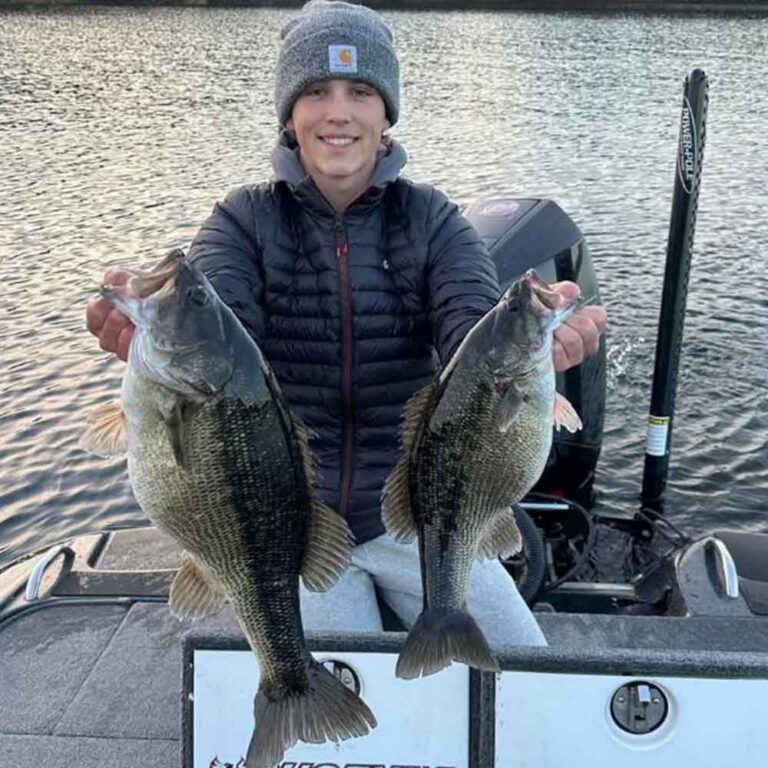Get a California Fishing License: Your Gateway to Angler’s Paradise
To get a California fishing license, visit the California Department of Fish and Wildlife’s website and follow their online application process. Planning a fishing trip in the beautiful state of California?
Before you cast your line, make sure you have a valid fishing license! Getting a fishing license in California is a simple process that can be done online through the California Department of Fish and Wildlife’s website. Whether you’re a resident or a nonresident, this essential document allows you to legally fish in the state’s abundant waters.
We’ll guide you through the steps to obtain your California fishing license hassle-free. So, let’s dive in and get ready for an unforgettable fishing adventure in the golden state.
Why You Need A California Fishing License
Before you pack up your fishing gear and head out to the beautiful Californian waters, it’s crucial to understand why you need a California fishing license. Not only is it a legal requirement, but it also contributes to the conservation and protection of fish populations. Additionally, having a fishing license grants you access to designated fishing areas, ensuring you can enjoy your angling adventures without any unnecessary hassle. In this article, we’ll delve deeper into these reasons, shedding light on the importance of obtaining a California fishing license.
Legal Requirement For Fishing In California Waters
Obtaining a California fishing license is not just a suggestion; it’s the law. Fishing without a proper license in California can lead to serious consequences, including hefty fines and even the confiscation of your fishing equipment. To comply with the state regulations and enjoy fishing without any legal issues, it is essential to obtain the appropriate fishing license.
Conservation And Protection Of Fish Populations
California has a diverse range of fish species, and the fishing license program plays a crucial role in their conservation and protection. The fees collected from fishing licenses are invested in various initiatives and projects aimed at maintaining healthy fish populations and their habitats. By purchasing a fishing license, you contribute to these efforts and help preserve the fragile ecosystems and ensure that future generations can also enjoy the abundance of fish in California’s waters.
Access To Designated Fishing Areas
Another significant advantage of having a California fishing license is gaining access to designated fishing areas. These areas are carefully managed to provide ample opportunities for anglers while maintaining a sustainable environment. By obtaining a fishing license, you gain the privilege of exploring and fishing within these designated areas without any restrictions. So, whether you prefer the serene lakes, vibrant rivers, or the vast ocean, a fishing license ensures that you can access the best fishing spots California has to offer.
How To Obtain A California Fishing License
Are you an avid angler planning a fishing trip to the beautiful state of California? Before you cast your line into the abundant waters of the Golden State, it’s important to obtain a fishing license. In this guide, we’ll walk you through the process of obtaining a California fishing license, the types of licenses available, and the fishing regulations and fees you should be aware of.
Online Application Process
If you’re looking for a convenient way to obtain your California fishing license, the online application process is the way to go. Here’s a step-by-step guide on how you can easily obtain your license online:
- Visit the official website of the California Department of Fish and Wildlife.
- Locate the section for fishing licenses and permits.
- Choose the type of license that suits your needs.
- Fill in all the necessary information, such as your personal details and fishing preferences.
- Review your application to ensure accuracy.
- Pay the required fee using a secure payment method.
- Submit your application.
- Once your application is processed, you will receive a digital copy of your fishing license via email.
By following these simple steps, you can get your California fishing license without leaving the comfort of your home. It’s a hassle-free and efficient way to ensure you’re ready for your fishing adventure.
Types Of Licenses Available
California offers a variety of fishing licenses to accommodate different individuals and fishing preferences. Here are the types of licenses you can choose from:
| License Type | Description |
|---|---|
| Resident Sport Fishing License | For California residents who are 16 years of age or older. |
| Non-Resident Sport Fishing License | For non-residents who are 16 years of age or older. |
| 1-Day Sport Fishing License | Allows you to fish for one full day in California. |
| 2-Day Sport Fishing License | Allows you to fish for two consecutive days in California. |
| Annual Sport Fishing License | A valid license for a full year from the date of purchase. |
Choose the license that best suits your needs and duration of your fishing trip. It’s important to note that different fees apply to each license type, so make sure to check the official website for the most up-to-date pricing information.
Fishing Regulations And Fees
Before you embark on your fishing excursion, it’s crucial to familiarize yourself with the fishing regulations and fees in California. These regulations are in place to protect the state’s fish populations and ensure sustainable fishing practices. Here are a few key points to keep in mind:
- Fishing seasons and bag limits vary depending on the species and location.
- Special regulations may apply to certain lakes, rivers, or ocean areas.
- Some fish species require additional permits or tags.
- Be aware of size limits for certain fish species.
It’s essential to stay updated on the fishing regulations to avoid any violations and contribute to the conservation efforts in California.
Now that you know how to obtain a California fishing license, the types of licenses available, and the fishing regulations you need to abide by, you’re ready to enjoy the thrilling experience of fishing in the Golden State’s abundant lakes, rivers, and oceans.
Planning Your Fishing Trip In California
Planning a fishing trip in California requires careful consideration of several factors, including researching fishing spots and seasons, understanding fishing restrictions and regulations, and following tips for a successful fishing experience. By taking the time to plan ahead, you can ensure that your fishing trip in California will be a memorable one. Let’s dive into each aspect to help you prepare for a fantastic angling adventure.
Researching Fishing Spots And Seasons
California boasts an abundance of picturesque fishing spots, ranging from serene freshwater lakes to scenic coastal areas. Researching these fishing spots will enable you to find the most suitable location for your fishing trip. Start by considering your preferred fishing environment – whether you enjoy freshwater fishing or prefer the challenges of deep-sea fishing. Once you have identified your preference, look for specific fishing spots that align with your interests.
Next, consider the seasons. Different fish species have varying migration and spawning patterns, making certain seasons more favorable for specific types of fishing. Take advantage of online resources and local fishing guides to determine the best time to visit your chosen fishing spot.
Understanding Fishing Restrictions And Regulations
It is essential to familiarize yourself with the fishing restrictions and regulations imposed by the California Department of Fish and Wildlife. These regulations are in place to protect fish populations and ensure sustainable fishing practices. Violating these regulations can result in penalties or fines, which can put a damper on your fishing trip.
When studying the fishing restrictions, pay attention to bag limits, size limits, and specific catch-and-release regulations. Additionally, be aware of any permits or licenses required for certain fishing areas. To ensure a smooth fishing experience, consult the official California Department of Fish and Wildlife website or contact local authorities for accurate and up-to-date information on fishing restrictions.
Tips For A Successful Fishing Experience
To enhance your fishing experience in California, follow these tips:
- Come prepared: Pack all the necessary fishing gear, including rods, reels, tackle boxes, and appropriate bait. Don’t forget essentials like sunscreen, insect repellent, and a valid California fishing license.
- Study weather conditions: Check the weather forecast before your fishing trip to ensure safe and comfortable conditions. Rain, high winds, or extreme temperatures can affect fishing conditions.
- Learn local techniques: If you’re unfamiliar with the fishing techniques commonly used in your chosen fishing spot, take the time to learn them. Local anglers can provide valuable insights into the best methods for catching fish in a particular area.
- Practice catch-and-release: Adhering to catch-and-release principles promotes sustainable fishing practices and helps conserve fish populations for future generations.
- Respect nature: When you’re out fishing, remember to leave no trace. Dispose of any trash responsibly and avoid damaging the natural habitat.
By conducting thorough research, understanding fishing regulations, and implementing these tips, you can ensure a successful and enjoyable fishing trip in California. So, before you cast your line, plan ahead and make the most of your time on the water.
California Fishing License Faqs
Before you embark on your next fishing adventure in the beautiful state of California, it’s important to familiarize yourself with the fishing license requirements and regulations. To help you get started, we’ve answered some frequently asked questions about getting a fishing license in California.
Who Needs A Fishing License In California?
According to California law, anyone aged 16 years or older who wants to fish in the state’s waters must have a valid fishing license. This applies to both residents and non-residents alike. Whether you’re planning to cast your line in the ocean, freshwater lakes, rivers, or streams, a fishing license is required to ensure the sustainability of the state’s aquatic resources.
How Much Does A Fishing License Cost?
The cost of a fishing license in California varies depending on various factors such as residency, duration of the license, and the kind of fishing you plan to engage in. Here is a breakdown of the different license options:
| License Type | Resident Fee | Non-Resident Fee |
|---|---|---|
| Annual Sport Fishing License | $52.66 | $142.05 |
| One-Day Sport Fishing License | $17.02 | $17.02 |
| Two-Day Sport Fishing License | $26.49 | $26.49 |
| Ten-Day Non-Resident Sport Fishing License | N/A | $49.94 |
It’s worth noting that these fees are subject to change, so it’s always a good idea to check with the California Department of Fish and Wildlife for the most up-to-date information.
Can I Get A Temporary License For A One-time Fishing Trip?
Absolutely! If you’re planning a one-time fishing trip in California, you have the option of purchasing a one-day or two-day fishing license. These short-term licenses are perfect for visitors or occasional anglers who don’t fish often but still want to enjoy the fishing experience. These licenses offer convenience and flexibility, allowing you to fish legally without committing to a long-term license.
It’s important to remember that even for one-time trips, a fishing license is required for individuals aged 16 years and older.
Now that you have a better understanding of who needs a fishing license in California, the cost of obtaining one, and the availability of temporary licenses for one-time fishing trips, you can confidently plan your fishing excursions with both legality and conservation in mind.
Conservation And Environment Stewardship
When it comes to enjoying the great outdoors and exploring the picturesque waters of California, it is important to prioritize conservation and environment stewardship. By doing so, we can ensure that future generations will have the same opportunities to appreciate the natural beauty of our state. This is why obtaining a California fishing license is not just a legal requirement but also a responsibility that should be taken seriously.
Importance Of Catch-and-release Practices
One of the key ways in which we can contribute to the conservation of our aquatic ecosystems is through the practice of catch-and-release. This means releasing fish back into the water after catching them, allowing them to continue their natural life cycle. It may be tempting to keep every catch, but by releasing fish not only do we demonstrate ethical fishing practices, but we also help in maintaining healthy fish populations.
- Catch-and-release practices minimize the impact on fish stocks, ensuring sustainable fishing for future generations.
- By releasing fish, we give them a chance to grow and reproduce, maintaining the balance of the ecosystem.
- It also allows anglers to appreciate the thrill of the catch without negatively impacting the fish populations.
Protecting California’s Aquatic Ecosystems
California’s aquatic ecosystems are diverse and fragile, supporting a wide range of fish species and other aquatic life. By obtaining a fishing license, we contribute to the funding of various conservation programs aimed at protecting these ecosystems. The revenues generated from fishing licenses go towards habitat restoration, species conservation, and scientific research to ensure the long-term health and sustainability of our waters.
- Through conservation efforts, we can preserve the delicate balance of California’s aquatic ecosystems.
- By protecting these ecosystems, we safeguard the habitats of numerous fish species and other aquatic organisms.
- Conservation programs funded by fishing licenses also help combat pollution and promote clean water initiatives.
Responsible Fishing Ethics And Practices
Responsible fishing ethics and practices go hand in hand with conservation efforts. When we engage in responsible fishing, we minimize our impact on the environment and promote sustainable fishing practices. This means following rules and regulations set by the California Department of Fish and Wildlife, including size limits, bag limits, and seasonal restrictions.
| Benefits of responsible fishing ethics: |
|---|
| Protects vulnerable fish populations from overfishing. |
| Preserves the integrity of the ecosystem by preventing the depletion of key species. |
| Encourages sustainable practices that ensure the long-term viability of fishing as a recreational activity. |
By adhering to responsible fishing ethics and practices, we not only show respect for the environment but also set an example for others to follow. Let’s be mindful of our impact on California’s aquatic ecosystems and strive to be responsible stewards of our natural resources by obtaining a California fishing license and practicing conservation in our angling adventures.
Conclusion
Obtaining a California fishing license is an essential step for anyone interested in exploring the state’s abundant and diverse fishing opportunities. By securing a license, you can ensure both legal compliance and support vital conservation efforts. With a valid license in hand, you can cast your line into California’s pristine lakes, rivers, and coastal waters, enjoying the exhilarating experience of reeling in various species of fish.
So, don’t miss out on the chance to embark on your fishing adventure and make lasting memories in the Golden State.



